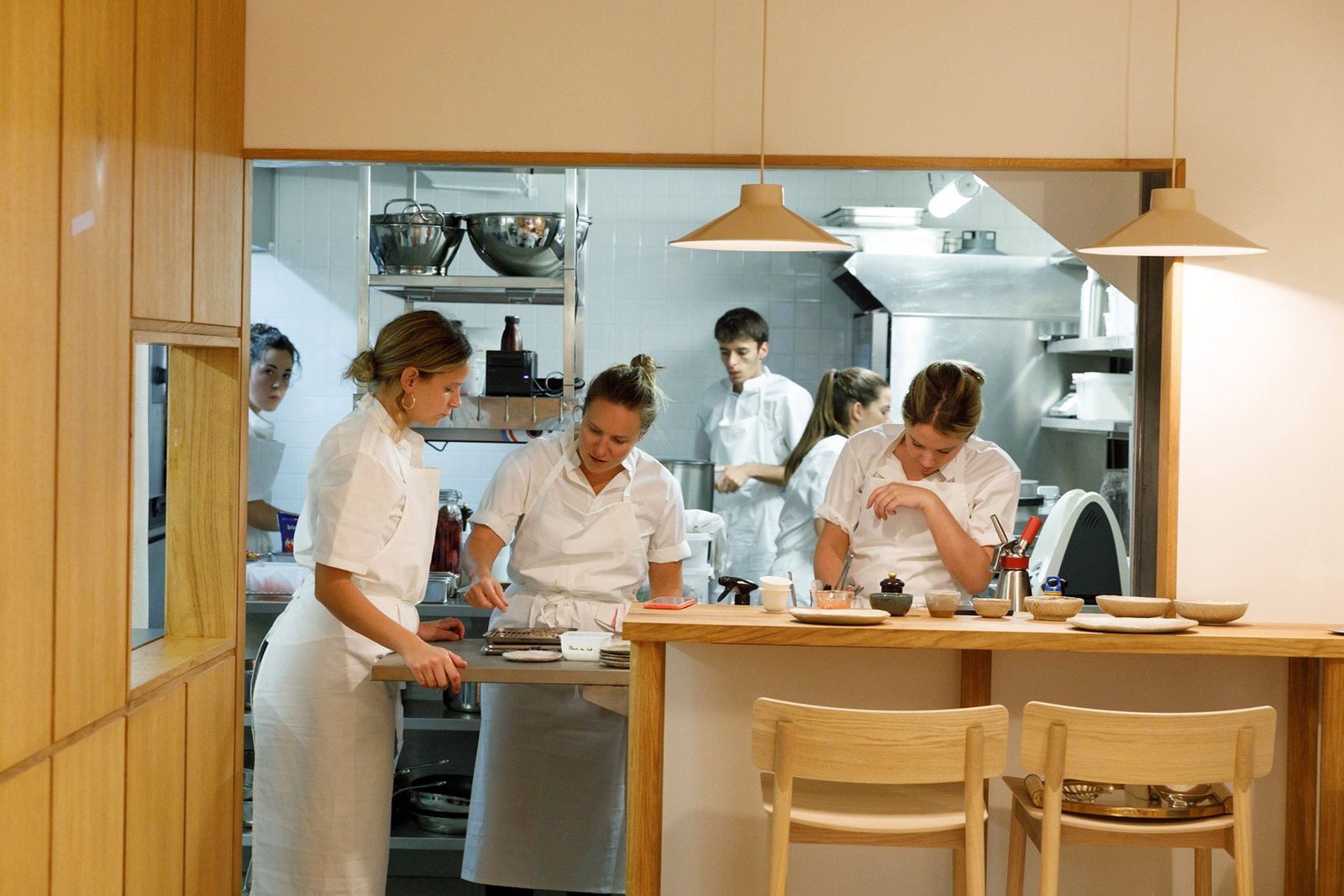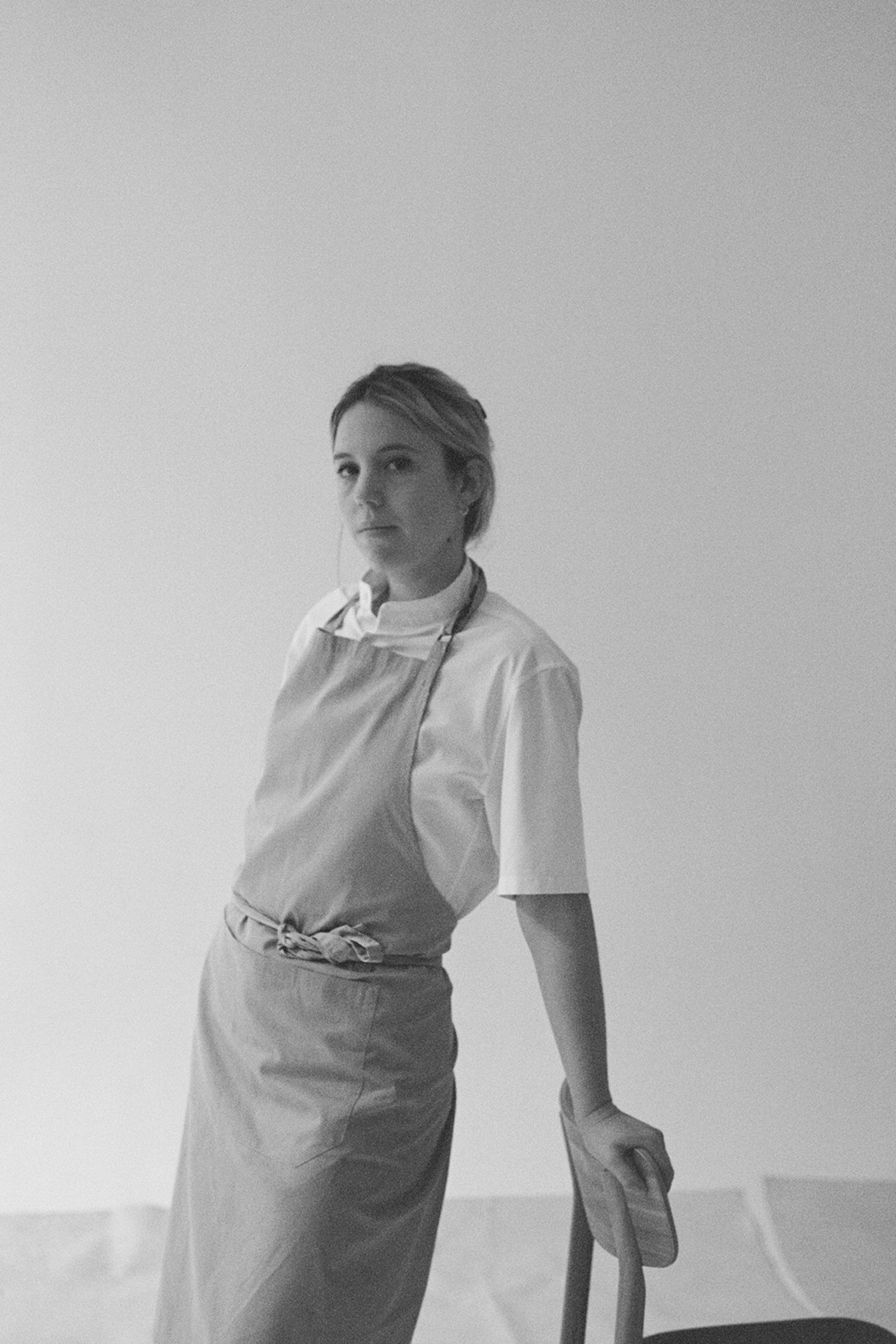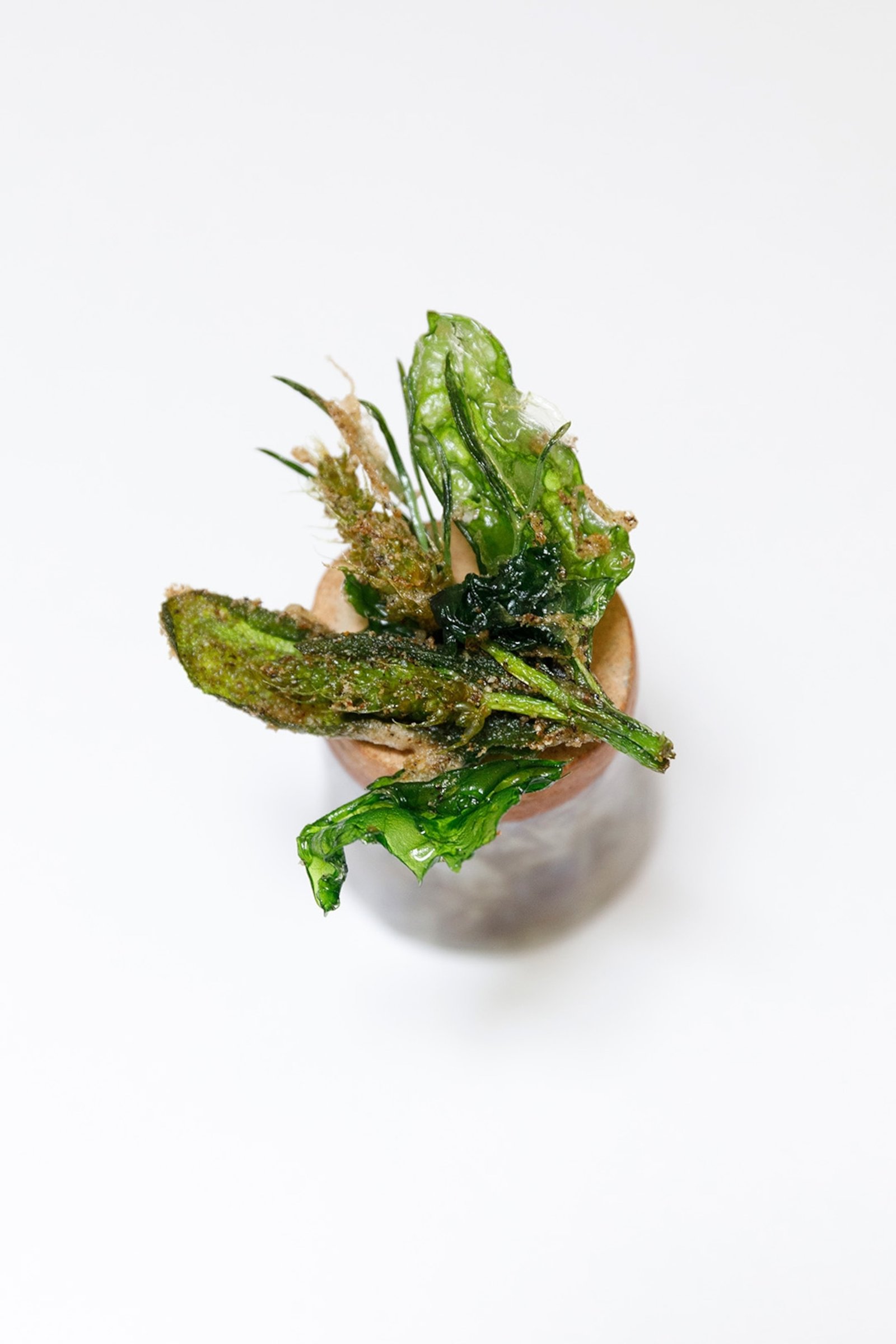This article was produced by National Geographic Traveller (UK).
Manon Fleury approaches being a chef the same way she does fencing. “Gastronomy is often presented as a job in which you compete against others — but in reality, it’s not at all,” says Fleury, who, prior to opening her Paris restaurant Datil, was a member of the French fencing team. Demanding schedules, adrenaline and the ultimate satisfaction that comes with success can be found in both disciplines. But it’s teamwork that’s important above all else. “What I advocate for at Datil is helping one another, kindness and respect — values that can also be found in sports — while going above and beyond, a requirement in upscale gastronomy.”
Building a healthy work environment was one of the main concerns when Datil opened in 2023. Although the kitchen follows a hierarchy for practical reasons, Datil has five co-chefs — all women — with Fleury and Laurène Barjhoux acting as the kitchen’s main leads. The aim has always been to strive towards a flatter structure and away from the traditional pyramid of titles and responsibilities. “Our goal was for people to feel good when they come into work at Datil, which hasn’t been the case in a lot of restaurants,” Fleury says. Stress and the pressure to succeed come with the job, but forms of humiliation and harassment over culinary missteps are also commonplace in the industry, she adds.
In 2021, Fleury co-founded Bondir.e, an organisation that works to prevent violence in professional kitchens. It’s also no coincidence she chose to build an almost exclusively female team at Datil. “There are a lot of women interested in this line of work who lose confidence at a certain point, who tell themselves it isn’t possible to work in this field. I wanted to show that it is,” she says.

“Our goal was for people to feel good when they come into work at Datil, which hasn’t been the case in a lot of restaurants,” Fleury says.
Photograph by Pauline Gouablin
The chef got her first taste of gastronomy growing up in Burgundy with her two older brothers and parents, when she would spend summers with her grandmother, who owned orchards. “I remember the smell of ripe fruit on tarpaulins, under the trees,” Fleury says. “Apples, pears, quinces, mirabelle plums and blackberries were abundant, along with nuts, once summer had turned to autumn,” she adds.
When Fleury entered Ferrandi Paris hospitality school, she often heard she would have to choose between her career and personal life. “It’s not a job women were encouraged to do, yet they did it at home,” she says. Despite this, she joined Alexandre Couillon’s team at La Marine restaurant in Noirmoutiers and Pascal Barbot’s L’Astrance, back in Paris.
Later, Fleury headed to New York, where she worked at Dan Barber’s farm-to-table restaurant Blue Hill at Stone Barns. But it wasn’t until the age of 27, when she became a chef at Le Mermoz in Paris, that critics and culinary connoisseurs began to see her as a star chef in the making. It was also there that she developed a style in which vegetables took centre stage.
When she was growing up, Fleury’s parents would pick up seasonal produce at markets and prioritised cooking with organic ingredients. This is reflected on the menu at Datil, which features produce sourced exclusively in France from independent suppliers. Not only does this help limit the restaurant’s carbon footprint, it also creates direct rapport and an ongoing collaboration with farmers, seaweed harvesters and animal breeders.
Citrus fruits are mainly sourced through a fourth-generation nursery grower in Occitanie who focuses on agroecology. Fleury also works with several vegetable farmers, including one based in Île-de-France, who uses self-irrigation powered by rainwater. The fish largely comes from a Pays de la Loire-based fisherman who uses handmade traps to catch crab, lobster and shrimp. These collaborations are at the core of Datil’s approach. “The gastronomy we offer wouldn’t be the same if we didn’t know where our produce was coming from,” Fleury says. “These are our raw materials and the relationship of trust we have with the people we work with is truly enriching.”

“There are a lot of women interested in this line of work who lose confidence at a certain point, who tell themselves it isn’t possible to work in this field. I wanted to show that it is,” Manon says.
Photograph by Pauline Gouablin

The menu at Datil features produce sourced exclusively in France from independent suppliers.
Photograph by Pauline Gouablin
Fleury sees Datil as the culmination of all her previous experiences. The restaurant’s name is a reference to a type of plum, a fruit with which she has had an affinity since her youth and was a core ingredient in one of her grandmother’s signature tarts. There are other nods to childhood on the menu. One playful dessert is served in a lemon, cut open to reveal lemon sorbet blended with Jerusalem artichokes. A madeleine, meanwhile, is another tribute to Fleury’s grandmother. Diners are invited to use their hands or spoon, like they might at home, highlighting the chef’s desire to find comfort in the physicality of food.
Last winter, the team created a dish centred around poularde (a type of chicken) raised in the French department of Sarthe for 120 days. It was complemented with endives, balancing out the fattiness of the poultry with something bitter. “We sought out this seasonal vegetable to layer underneath, which also came about from our thinking process concerning the balancing of flavours,” says Fleury. French peanuts, apples and a lemon condiment are layered within the endive before it’s caramelised and candied.
Fleury highlights the importance of giving meaning to each step at Datil — from building an environment in which chefs and employees can thrive to upholding an environmentally conscious approach. “There needs to be meaning in what we do,” she says. “It’s not just about food. We are part of a very elitist side of gastronomy that may be criticised for its [lack of] usefulness,” she says. “We have a role to play when it comes to sustainability.”
Shortly after Datil received a Michelin star in March 2024, news of Fleury’s almost entirely female team of chefs became the subject of debate. She remembers hearing accusations of discrimination against men. “I didn’t expect it to be so surprising to have a team centring mainly on women in 2024,” she says, noting that there are in fact some men on her team at the restaurant. “[Having a female-led kitchen] is a commitment that’s needed in order for progress to be made, because this field is still very male-dominated,” Fleury says. She’d like to see more women represented in gastronomy — not solely by awarding them Michelin stars, but also by them starting their own projects and daring to be ambitious. Because, she says, “today, it’s still not very well regarded to be an ambitious woman”.
Published in Issue 28 (summer 2025) of Food by National Geographic Traveller (UK).
To subscribe to National Geographic Traveller (UK) magazine click here. (Available in select countries only).


